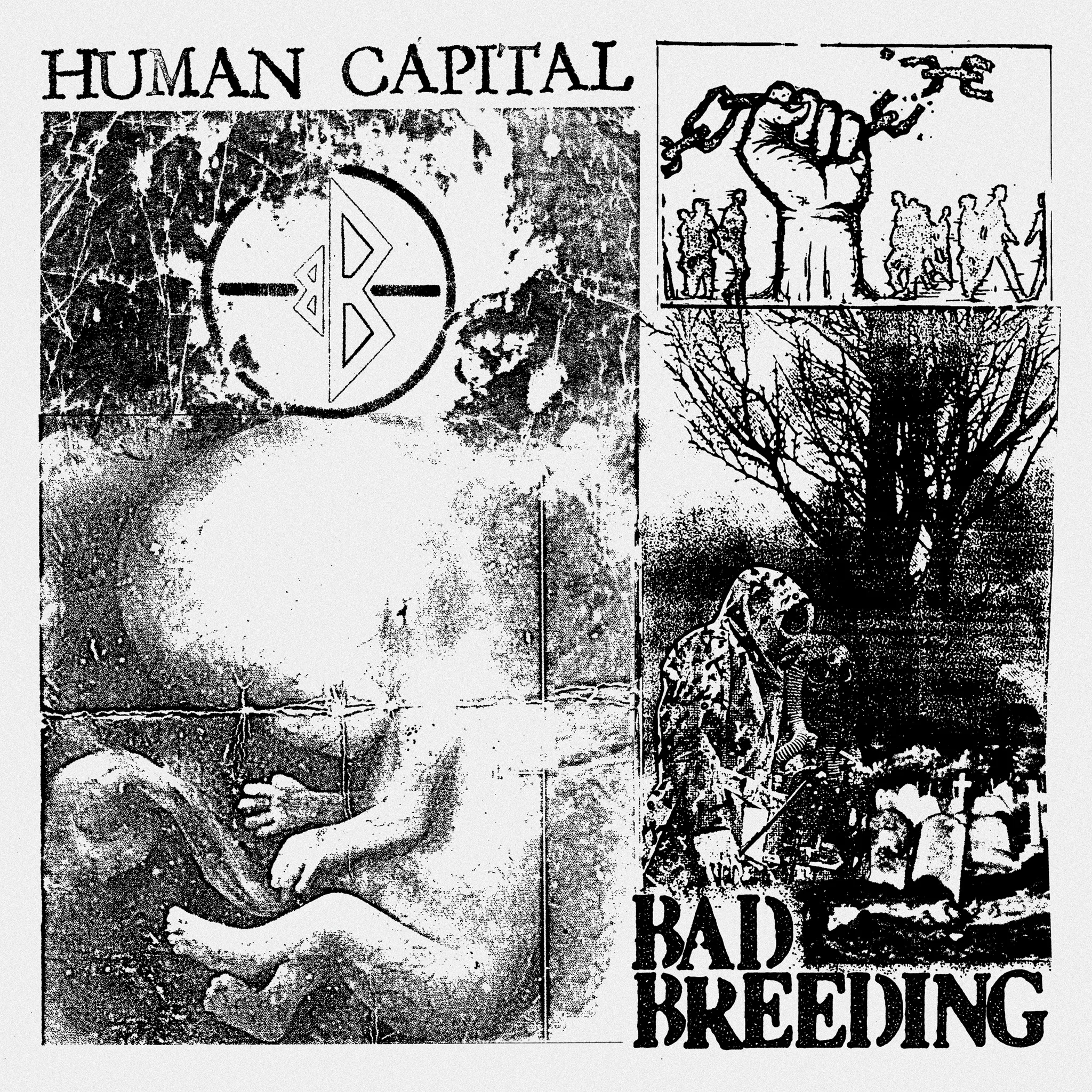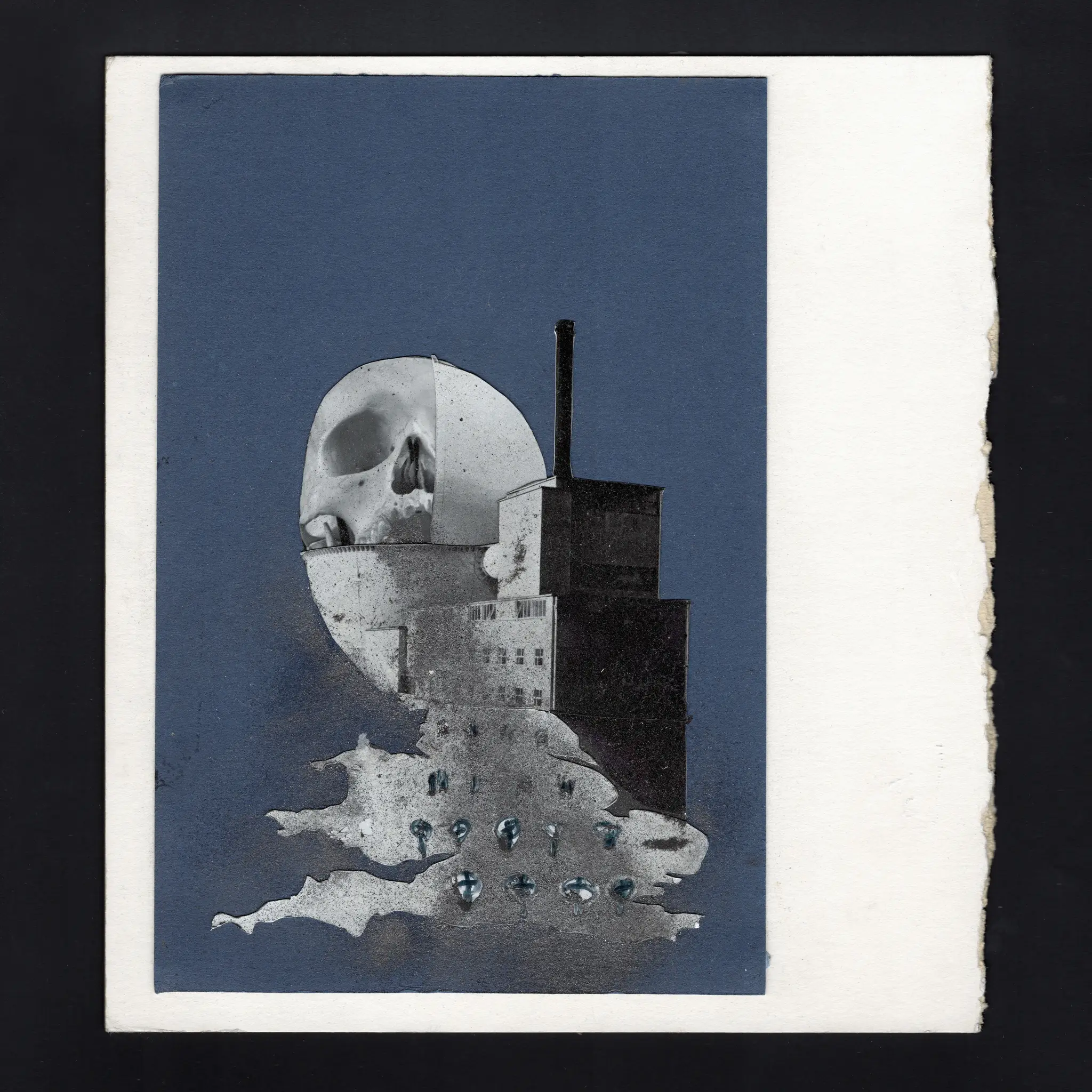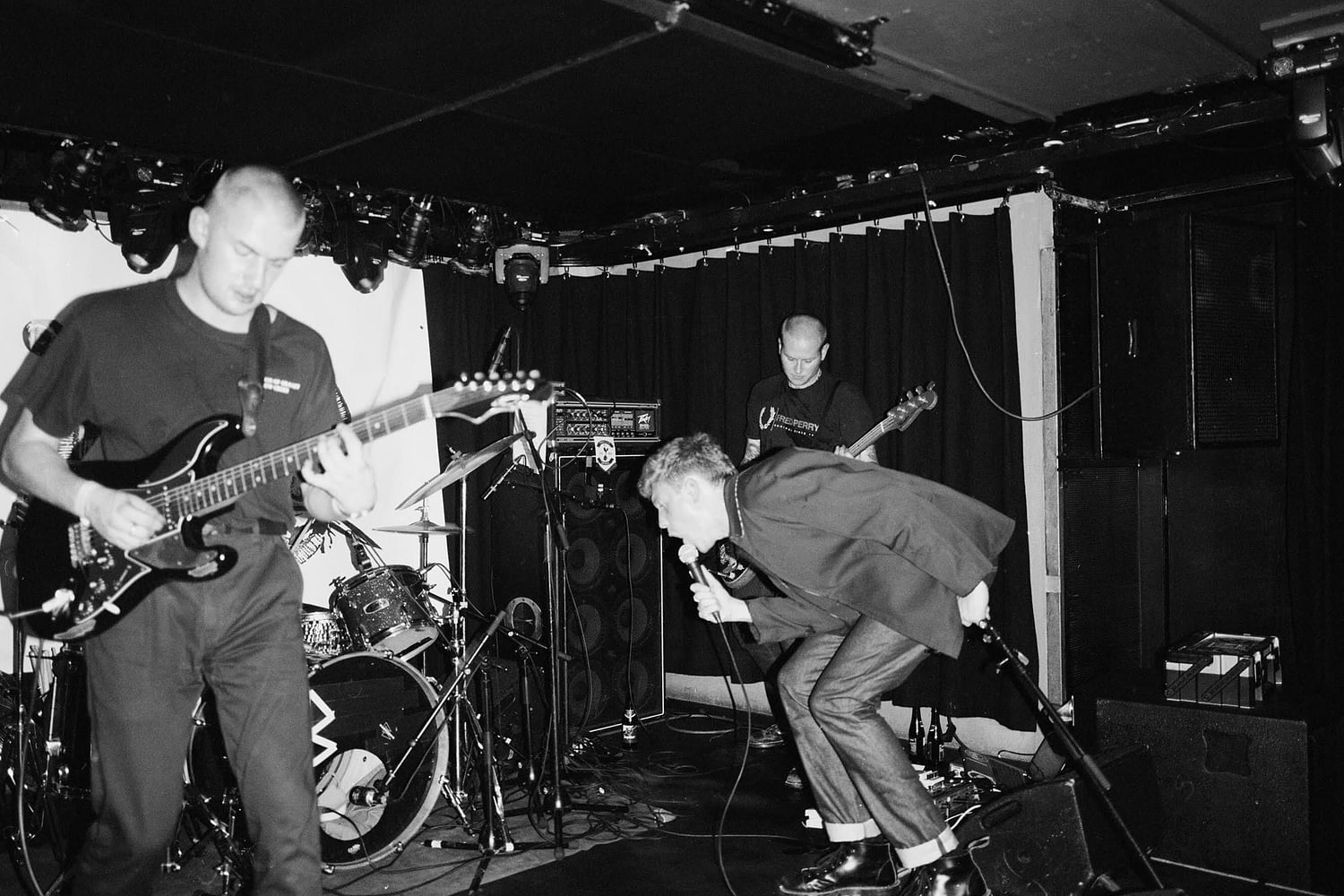
Track-by-track Bad Breeding talk through their new album ‘Exiled’ track-by-track
The band’s Christopher Dodd guides us through their new politically-charged onslaught.
Last week, Stevenage quartet Bad Breeding released their third album ‘Exiled’ and now they’re guiding us through the entire thing, track-by-track.
An album which - as we said in our review - “tears the listener a new one from the start”, it’s “a record that barely takes its foot off the gas pedal.” And unsurprisingly, it covers a variety of intensely politicised themes - austerity, the government’s failures and dehumanisation all get a look in - which mirror its ferocity and anger perfectly.
“There are clear enemies for us to face,” the band said, in an essay shared around the release of the album. “In the coming years of dwindling resources and accelerated ecological catastrophe that fact will become increasingly stark as the gilded class of the super wealthy are forced to become more transparent and authoritarian in their attempts to dominate. Along with a likely surge in more violent and direct methods to achieve these ends, there will be continued efforts to obfuscate the truth of the reality we experience and know to be unjust in order to dilute and undermine the anger that is already growing and to allow self-doubt to creep in.
Guard against it in the most productive way possible – keep your hate pure.”
Listen to ‘Exiled’ in full, and read our track-by-track, as written by the band’s Christopher Dodd, below.
Exiled
The overarching theme of the record focuses on the impact of neoliberalism on places like Stevenage, a New Town on the outskirts of the London commuter-belt where large sections of the community have been ignored, but also punished as a matter of ideological course. The opening song serves as a signpost for the record’s intentions, which were to highlight and pinpoint the rank injustices we experience on an every-day basis. There was no attempt on this record to hide away from that with ambiguity. ‘Exiled’ was always intended as a record that stood in opposition to accepting these conditions. We didn’t want to make something that simply absorbed the venality of our times by turning things into a comedic or naval-gazing exercise. The intention was never to provide fashionable liberal ‘answers’ or perpetuate a construct for onlookers to show empty sympathies for. Instead the idea was to create a piece of blunt resistance that felt like it came from a genuine community of people. The solutions to the problems we endure will be found in that exact place: in communities, through the direct actions of the collective and with unflinching solidarity.
Repossession
We are forced to live within the confines of a neoliberal system whose seeming confidence and unshakeable insistence have been so pervasive that we are now governed by the notion that our world is naturally split into a hierarchy of winners and losers. What happens, happens. This result is the just, rigorous course of pragmatic economics. The market is always right. We get what we deserve. ‘Repossession’ looks at the emphatic misery this system has wrought on working communities. It’s a story of capital becoming so engrained as the ultimate force that there appears no escape from its unbending, calculated logic. The sight of debt collectors knocking on neighbours’ doors, or family members being driven to the point of despair because of spiralling debt, have become worryingly normalised in the last decade. I wanted to write a song that encompassed what the likes of Mark Fisher, Slavoj Zizek and Fredric Jameson were hinting at with it being “easier to imagine an end to the world than an end to capitalism”. That sort of capitalist realism has been distressingly apparent in the economics of my local community for a number of years now.
Raking Through the Screed
Storytelling under late capitalism has encouraged a constant, intentional friction in the media, in our culture and in our politics. It has been designed to sand away at our edges until it can often feel too tiring to make them sharp again. ‘Raking Through the Screed’ was written as a statement of endurance in the face of these constructed political realities. It is a rebuttal of the idea that my community is in a state of perpetual unfixable victimhood. Instead it is a place of defiant pride, of people wrestling with the scheming nature of the emboldened right and the preening class tourism of the left. Once you push past the political misdirection and virtue signalling of the media, Stevenage endures for what it really is: a town of quiet dignity that has borne the devastation of neoliberalism and sought to staunch the bleeding wherever possible. It’s a town suffering at the hands of austerity, where people persist.
Clear Blue Water
‘Clear Blue Water’ examines the speculative attitude of private ownership in housing - the idea of private landlords buying up properties, flipping them onto the rental market and pricing people out of a home. This process is conducted under a smog of moralistic signalling, where working communities are the purported benefactors of understanding and generous capitalists, when it’s quite clearly driven by profit and the lust for hoarding capital.
Whose Cause?
‘Whose Cause?’ explores political misdirection in the media and its role in sowing seeds of division, suspicion and distrust in our communities. It touches on the nefarious ties between capital and a pocketed media class, while commenting on how instruments of the right have harnessed and manipulated divisive politics of identity in an attempt to dent the collective bonds of solidarity that bind our communities together. It’s about pushing beyond force-fed narratives and looking at the disastrous implications reactionary storytelling has on propping up the survival of late capitalism and the patrician outriders it funds and protects: the gilded bourgeoisie, the imperialists, the warmongers, the contemptuous old-money hawks, the emboldened corporate elite…
Theatre of Work
The noxious smog of neoliberalism has been most poisonous in the conditions of my working life, where capital dominates and the chance for genuine human flourishing has been shackled by the entrenched suffocation and manipulation of the labour market. This song explores the theatre of being tied to agency work and zero-hours contracts, dogged by insecurity, stripped of confidence and laid bare to the laughable fatalism of being exploited by the very concepts you’re taught as necessary to your own survival.
C.S.A.M.
The pursuit of western imperialism in the last two decades has arguably accounted for the deaths of at least half a million people in Iraq and Afghanistan. And for what? Oil? Money? National pride? Strategic positioning? Our march of emancipatory progress? This song stands in direct opposition to the rank moralisation of war and the political misdirection that has led us to this point; all the bloodshed, lives lost and money made.
Breaking Wheel
It is becoming evermore apparent in some sections of my community that the role of the police has been geared towards protecting the interests of capital and the state at the psychological and material expense of the working class. ‘Breaking Wheel’ centres on the dangerous protections aggressive policing has afforded the state in its intimidation and harassment of communities trying to navigate the vile inequalities planted and nurtured under late capitalism.
Brave New Church
Reactionary nationalism and white supremacist movements often use populist storytelling as a means of impacting on our perception of the details we experience. ‘Brave New Church’ is an exploration of those warped ideas surrounding identity and how it has been used to trigger extremist, reactionary thinking. The lyrics were written partially in response to some very current and particular fascist manoeuvring to incite racial hatred within our communities by manipulating notions of victimhood, xenophobia and class, before turning them into a profitable business to prop up deplorable opinions. It ends on lyrics nodding toward the argument that these movements – which often lead with a veneer of patriotism and a laughable insistence on ‘speaking for the people’ – are the same old profiteering cartels that are here to milk the very anxieties they have played central roles in creating.
A Rag Hung Between Two Trees
For the last four or five decades punitive economic and political ideologies have sought to inflict deep pain and suffering on the most vulnerable sections of British society. This has become increasingly stark under the Conservatives in the last eight years. ‘A Rag Hung Between Two Trees’ looks at that suffering through the prism of Stevenage and our growing homeless community being forced onto the streets - a symptom of the callous nature of austerity and the naturalisation of government policy that deems capital, growth and liberal economics as being above the welfare of humanity.
Tortured Reality
The closing song on the record observes the continued dehumanisation of the decisions that will come to define the shape of our world in the next half century, if we manage to get that far. We’re reaching a point where it’s becoming increasingly obvious that late capitalism is entirely incompatible with the survival of life on our planet. The economic and political structures that dominate have knowingly accelerated the decline of our environment in pursuit of economic growth, production and an incessant obsession with capital. At the same time we are kept apart and divided by constructed political realities designed to disarm and wear us down. The emboldened corporate world continues to define our politics and shape our lives. When they fail, the platforms created to allow us to hold them to account are bent to the whim of gilded class. They are bailed out. Capital is king. The cycle continues. Elsewhere, sadistic military machismo is unquestioningly lauded by those in positions of power. The ability, the desire, to detonate bombs which kill hundreds of thousands and scorch the earth for generations are held up as measures of progress. The continued advancement of technology means human life can be ended from behind a keyboard at the click of a button. In the coming years death will become the inevitable art of AI, allowing technology to decide who to destroy with almost no human involvement whatsoever. Who will control these structures and instruments in the coming decades? The final three or four minutes of the record are an instrumental depiction of the future of this planet if we do not provide an immediate, radical challenge to the neoliberal world as we know it.
‘Exiled’ is out now via One Little Indian.
Read More
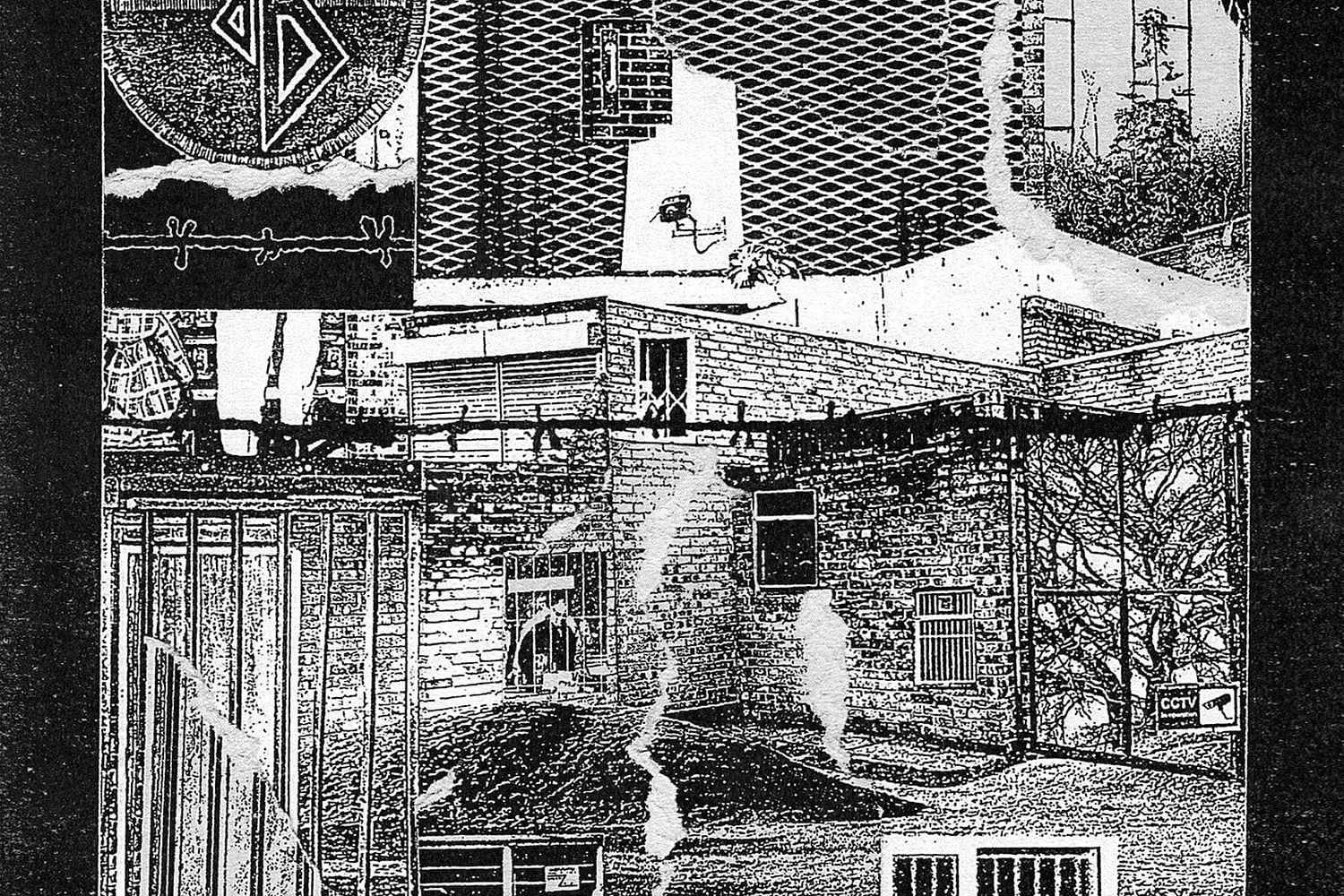
Bad Breeding - Exiled
3-5 Stars
A record that barely takes its foot off the gas pedal.
21st June 2019, 7:53am
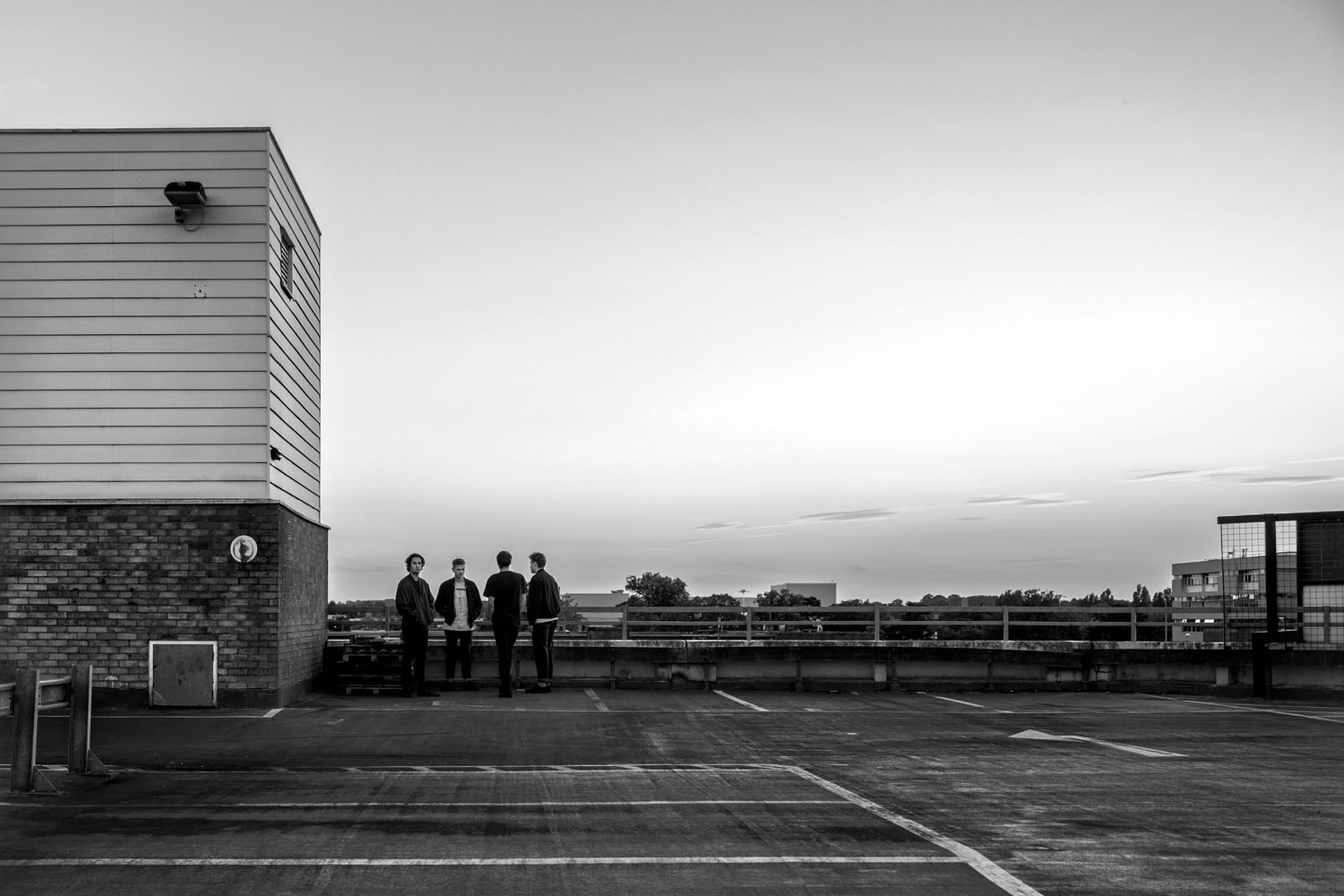
Bad Breeding share ‘Theatre of Work’ from upcoming album ‘Exiled’
The track is as political as ever and features guest saxophone from Lewis Evans.
30th May 2019, 12:00am
Felix from The Maccabees and Yala! Records shines a light on his favourites of the new British breed
Following the launch of his brand new record label Yala! Records, Felix cherry-picks Britain's best new bands.
25th July 2016, 12:00am

The Neu Bulletin (30th January 2015)
DIY's daily batch of new music tips, featuring Bad Breeding, The Golden Dregs and Claws.
30th January 2015, 12:00am
With Bob Vylan, St Vincent, girl in red, Lizzy McAlpine and more.
